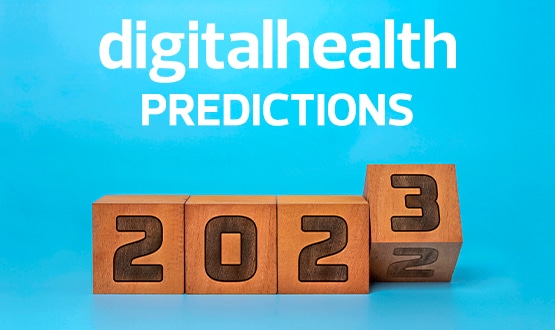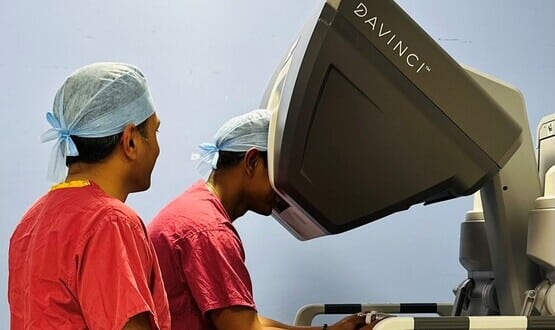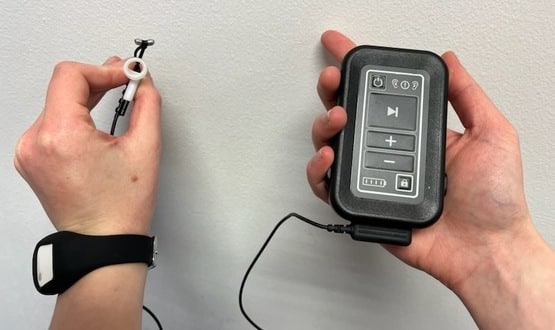The year 2022 was unsurprisingly another busy one with lots of changes and developments in the digital health world. We asked health tech suppliers what they expect to happen in 2023. Here is what they had to say:
Markus Bolton, director of Graphnet Health
“I predict that the current drive towards using population health to transform how care is delivered will accelerate through 2023 as more and more use cases become de facto standards. We are already seeing huge strides in areas such as waiting list management, fuel poverty, hypertension, diabetes, early intervention (social care) and suicide prevention.
“2023 will be the year that care systems use data to move from insights into actions.”
Guy Lucchi, managing director of healthcare at System C
“There will be a drive towards digital enabling services to make the transformational shift to new models of care that are required to overcome key health and care challenges. A big part of that will be ICS digital strategies beginning to address cross-organisational workflows, particularly those between health and social care.
“Our customers are increasingly focused on ensuring everyone has a good start in life to promote the best possible outcomes during an individual’s lifetime. We will continue to support this approach with our child health, social care, and education management solutions.
“Digital will remain a key role in helping to deliver high levels of flu and covid vaccination amongst the population. The lessons learnt from the successful Covid-19 vaccination roll-out will be scaled and applied to future programmes.
“EPR procurements will be under more scrutiny with particular focus on value for health outcomes versus spend, which we are ready to respond to.”
Jane Rendall, UK and Ireland managing director at Sectra
“Will genomic data change the nature of medical diagnostics? This is a conversation that is likely to rapidly accelerate during 2023. Questions will be explored that could help to lay the foundations for precision diagnostics – an important part of precision medicine that has the potential to be hugely transformational for how patient diagnoses are delivered.
“Technology will play an important role in bringing together genomic information with data now being harnessed at scale in regionalised diagnostic imaging and digital pathology initiatives that have rapidly accelerated in the NHS.
“Questions around how clinicians and researchers might visualise and interrogate genomic data alongside other diagnostic imaging data, and the possibilities this opens up, are key for 2023. This could be incredibly meaningful for changing the nature of how research is done, getting patients on the right pathways quickly, and targeting treatments for cancers and other illnesses.”
Brian Murray, UKI regional sales director at Orion Health
“In 2023 we expect to see a greater shift from reactive to proactive care and population health management. Technologies such as virtual wards, digital care planning and digital front doors will become more widely adopted.
“Long-time advocates for interoperability at Orion Health, we welcome the introduction of the DCMS Bill on Information Standards for Health and Adult Social Care which will encourage suppliers to engage with and further improve information sharing.
“We expect to see better information sharing on both a regional and a national level, driven by advances in national interoperability solutions and the ambition to share care plans. The role of interoperability standards will continue to play a vital role in shaping systems and data sharing adherence.
“We look forward to working with our NHS clients and partners across health and care in the coming year to deliver upon this digital transformation agenda.”
Tom Scott, commercial director at Alcidion
“For digital health in 2023 it will be about how industry mobilises to support Frontline Digitisation. We know there is funding available – but how do we drive the most value from that funding at a time when many NHS organisations are not geared-up for wholesale change?
“Questions around how the NHS unlocks value from its existing technology, fills digital maturity gaps, and engages in digital programmes that deliver clinical value quickly, whilst solving specific frontline and operational challenges, will therefore be particularly important.
“Just as important will be the flexibility, interoperability and collaborative will of technology providers to make this possible. We are going to see more customers unlocking value from existing solutions, whilst delivering EPRs in interoperable and integrated ways.”
Dr Rachael Grimaldi, CEO at CardMedic
“As ICSs move into their second year, I’m personally hoping to see approaches to reducing health inequalities mature, building on the excellent foundations created by the Core20PLUS5 framework and other initiatives.
“However, I predict the road ahead will not be straightforward if worrying rumours around central budget cuts to core services such as maternity, mental health and cancer are correct – three of the five clinical areas of focus in Core20PLUS5 identified as requiring accelerated improvement.
“Digital has an important role to play in helping these services become more efficient, patient-centred and personalised. Intrinsic to this will be reducing communication barriers for patients; something regions such as Suffolk & North East Essex have built into their ICS-wide health inequalities strategy.
“But, this will only be achieved if the teams working tirelessly to keep core services on an even keel are given the support to be able to drive forward innovation.”
Tom Whicher, chief executive of DrDoctor
“I expect 2023 to be the year that the NHS makes inroads in recovery after a tumultuous period since the pandemic began. With ICSs becoming more established, there will be a greater shift in focus from quick fixes and stop gap solutions, to a bird’s eye view of capacity challenges to increase provider productivity across entire pathways.
“Investing in end-to-end end solutions to tackle the backlog – that benefit patients and clinicians alike – is crucial to making this happen. As well as using tools to create the capacity for more appointments, the focus should be on using digital to validate waiting lists and reconsider the clinical need for these consultations, using triage and PIFU whenever possible.
“I also predict a consolidation of players in the market, with smaller single-functionality companies becoming part of larger end-to-end platforms. Plus, the onward trajectory of the NHS App as the digital front door of the NHS.”
Matt Cox, managing director UK and Ireland at Better
“2023 will be an unpredictable year filled with innovation. Plans will need to be adaptable and commissioners will need to have a flexible, open approach to digital transformation. Each ICS will mature at a different pace, and therefore have different priorities. There’ll be no such thing as a one size fits all approach – being able to switch between priorities depending on what funding is available without disrupting the overall digital vision will be important.
“More care provision will move out of hospitals and into communities, and will become more patient-centred. To support this, there will need to be a stronger focus on data standards and policy. Digital teams will need to adapt fast, have control of their data, and be flexible. Low-code tools and persistent data will be vital for enabling regional digital teams to innovate, build, and integrate new approaches in 2023 and beyond.”
Dr Satya Raghuvanshi, head of clinical at Accurx
“When we look back on 2022, there is no doubt we’ll say it was an incredibly difficult time for the NHS and social care. But despite this, every single day NHS organisations and frontline staff have risen to the challenge, no matter what the circumstances. For this, they deserve great recognition.
“In 2023, as ICSs move into maturity, we believe they will start to truly harness the benefits of tech implemented across services and at scale, resulting in system wide efficiencies through improved optimisation and utilisation of services. ICS leaders who do embrace system wide adoption of tech will be far better placed to deliver integrated care for their populations.
“But when we talk about tech, we’re not talking about complex systems that require lots of training and implementation. We’re talking about simple tech that just works, for example SMS messaging patients on waiting lists at scale to find out if they still require care, or automated appointment reminders to reduce DNAs.
“Over the next 12 months and beyond we want to see healthcare become more asynchronous. That way, two people who don’t need to be in the same room or on the same call at the same time can have conversations whilst delivering more effective care.
“We envision a world where a higher proportion of care is delivered asynchronously and flexibly, which will create more clinical capacity across the system for patients who do require in-person care. Our health system is continually struggling to keep up with demand and find productivity gains. Communicating more effectively will be key to making healthcare delivery sustainable.”
Paula Ridd, general manager at Altera Digital Health UK
“This year, much needed groundwork was undertaken by NHS England to consolidate the role that interoperability will play in our health and care system, with documents like the draft Standards and Interoperability strategy being published. For 2023, I expect these plans to mature, and for establishing ways to share data safely and efficiently to be a top priority for healthcare organisations.
“This will then enable organisations to prioritise and improve patient flow, both within hospitals and between care providers. This will make sure patients can receive the best care in the most appropriate care setting – one of the fundamentals of the integrated care model.
“Virtual wards will play a big part in this process, being a large piece in the puzzle in addressing long standing issues like bed blocking. Though, to do it effectively, they will need to be integrated in the electronic patient record.”
Anne Cooper, chair of Ethical Healthcare Consulting
“2023 is going to be an unprecedented year for the NHS and people who need NHS services. There has never been a time when we need digital innovation more, innovation that provides services in new and different ways and giving patients more tools to care for themselves – necessity really is the mother of invention.
“I predict that there will be a continued focus on caring for patients using digital technologies at the place they call home and giving patients and carers tools to help them to manage care. Now is not the time for paternalistic approaches to care, but one where professionals break down professional boundaries with patients, where digital tools and education transfer knowledge to patients and service users.
“The risk amongst all of this is those who this approach leaves behind and we need to be mindful of digital inequality as we design new services.”
Andy Meiner, chief revenue officer at ReStart
“The last of the paper-based acute trusts will either be digitised or have a funded plan for digitisation in 2023. Once they all have digital functionality, a greater focus will be placed on data as an asset and driven by the promise of benefitting from AI, there will be an emphasis on data liquidity, data quality, and data governance which will all need to be improved before the valuable insights can be unlocked.
“We predict that less digitally mature organisations will be required to interoperate and integrate with the ICS ecosystem which will present challenges due to the closed nature of some of the EPR systems available, and this will become a stumbling block to making progress.
“Organisations that have a well-developed data strategy based around open data standards will be able to complement their legacy estate with innovation, while others may be bound to the glacier-like product roadmaps of the behemoths and will struggle with interoperability of data across systems.”








/cdn.vox-cdn.com/uploads/chorus_asset/file/25362061/STK_414_AI_CHATBOT_R2_CVirginia_D.jpg)


